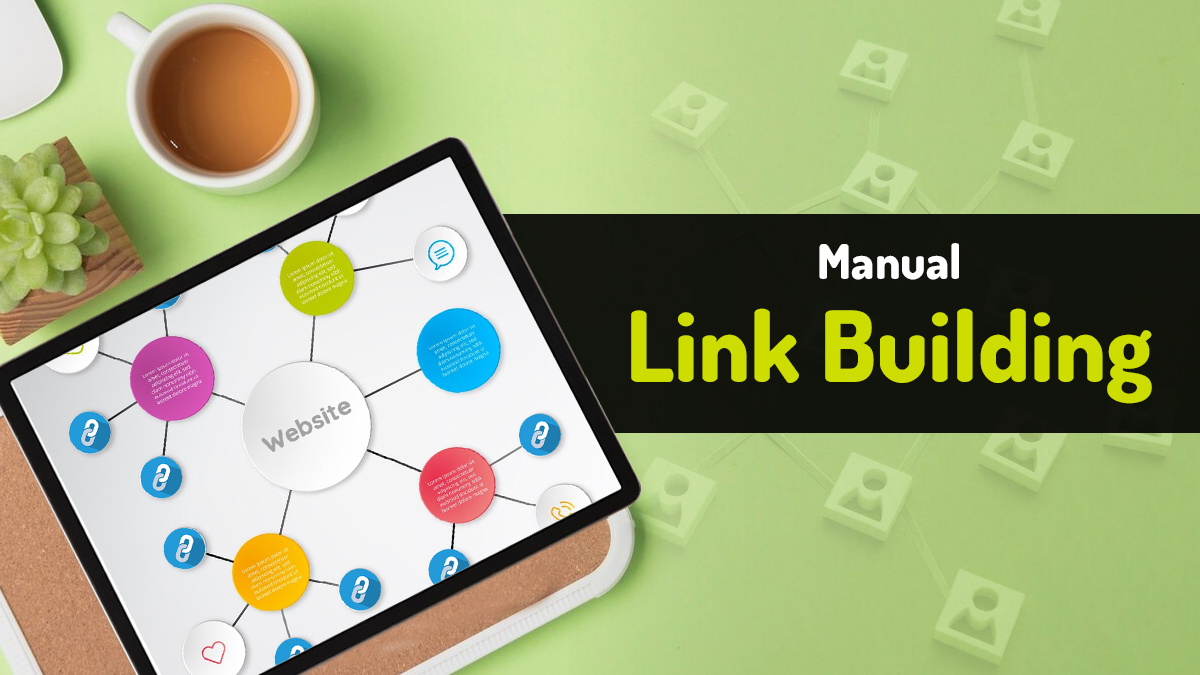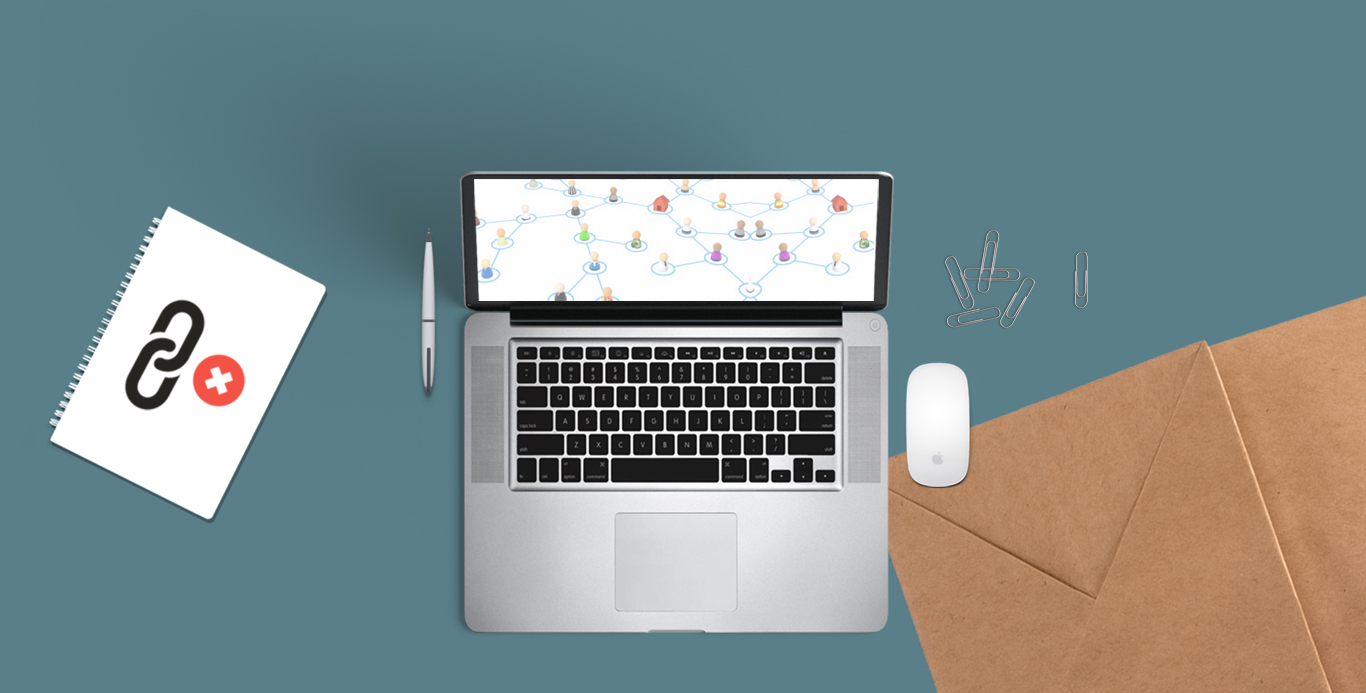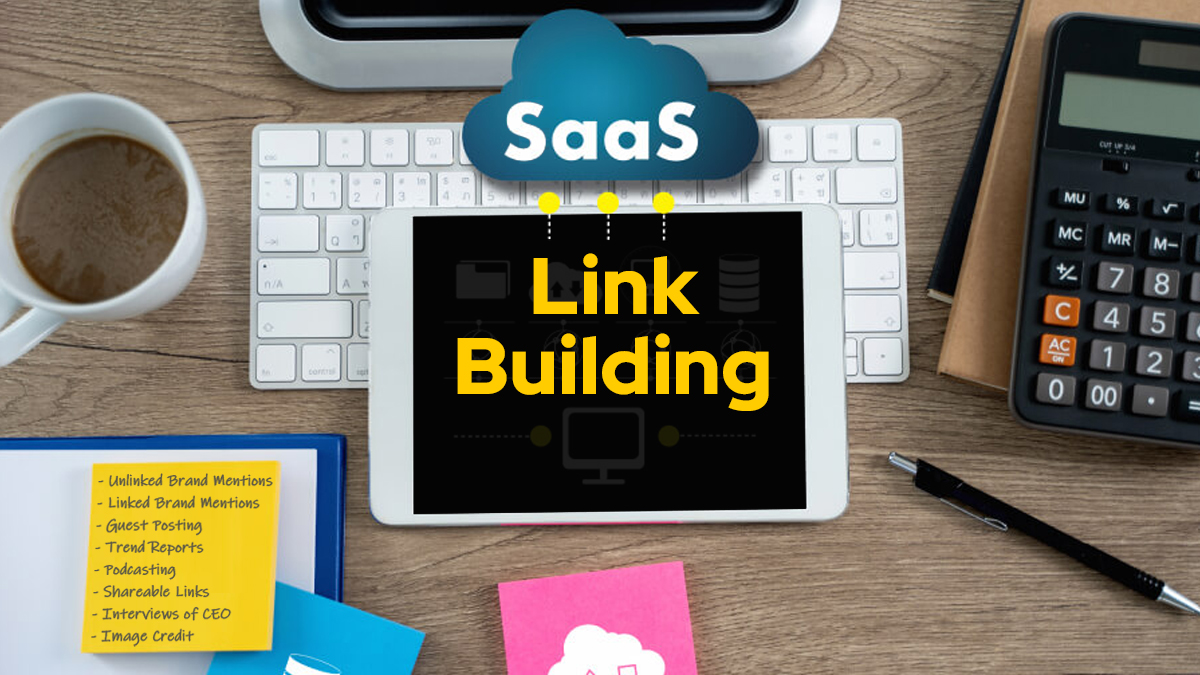Links have been very important for a website’s reputation for a long time. Good links to your website are like a “vote” or approval from other sites. If there are many sites that link to your site, Google will see you as a reliable source of information.
Link building has changed over time. Those days are over when sharing a link to your page in other people’s comments helped you get high rankings in search results.
Now, building links is a careful and dedicated task. Believe us, putting in that hard work takes time and energy. Only websites that are ready to work hard will get the true benefits of manual link building.
Good link building strategies help a website grow on Google. But what makes a link building strategy good? How can you manually create a strong backlink profile so that your site gets noticed for the right reasons? We will see the answers to these questions in this post.
What is Manual Link Building?
Even though website owners employ many SEO strategies today, building links manually is still one of the key ways to help a website rank better in search result pages.
Manual link building is a strong way to get more visitors to your website and improve your brand’s reputation. Manual link building means that a person creates links instead of using software to do it. Some common ways to build links manually are:
- Writing reviews
- Guest blogging
- Influencer networking
- Blog comments
- Press releases
- Relationship building
The focus here is on having good quality instead of quantity. Instead of trying to get many links quickly, focus on creating good content that attracts links naturally, instead of using low-quality methods.
When done right, manual links help you get more visitors from other websites in a real and steady way. This means you are in control. You can decide where to make links, how to make them, and who gets recognized for them.
This link building strategy takes more time and work than other methods, but it’s worth it if you want your website to show up high on results pages.
Outreach services help build manual links by connecting with relevant websites and influencers to secure high-quality backlinks, improving your site’s SEO and authority.
Manual vs Automatic Link Building
It’s important to know the difference between manual and automatic link building methods to find out which one is better for your website.
What is Automated Link Building?
This is a method for creating links to your website using automated software. Here, people who create links have limited control over where these links appear or how they look because everything is decided by a software. You won’t be able to choose which websites your link shows up on.
One of the biggest benefits of this kind of link building is that it requires much less time and effort than doing it manually. On the other hand, using automatic link building can get your website to be penalized by Google. This is because these automated links are usually fake or don’t seem real.
A Google Penalty, or manual action, happens when Google finds bad or fake links that lead to your website. This can lead to a big drop in website visitors, how trustworthy the website is (domain authority), and its ranking in search results (PageRank).
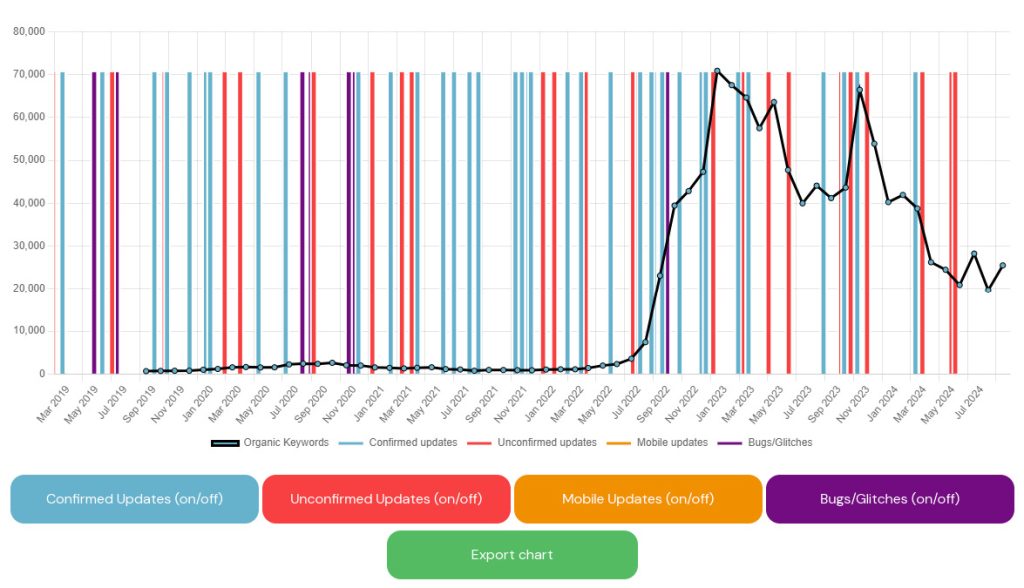
If your link is on a bad website, it could hurt your rankings with search engines. This is especially true if the website has a bad reputation or doesn’t relate to your brand at all. Google ranks websites higher in its search results if they use good, relevant links that are chosen carefully and fit well with the content.
Using automatic software and bots to create links can quickly get you in trouble with Google. There are various penalty checker tools that can help you see if Google has penalized your website.
Is Building Links Manually Still Useful?
If you want to get backlinks fast and don’t worry about how good they are, using automated link building might look like the best choice. But if you get a manual penalty, you could lose all the effort you’ve put into your website.
This is why doing link building manually, even though it takes a lot of time, is a much better way to build links. Using automated software might hurt your company’s reputation, especially if you’re a small business. This can happen if your links end up as spam or show up on harmful websites.
So, it’s reasonable to say that building links manually is much safer than using automated methods. Also, by making good and related links on your own, you’re more likely to improve your search engine rank.
If you want to create good links and get people to visit your website from other sites, doing link building manually is the best way to go. It helps more people find your website on search engines, even if your site is new, and it can make your page appear higher in search results.
Also Read: Crafting a Winning Natural Links Profile
Best Practices for Manual Link Building
Before you get links from other websites or hire someone to help you build links, you need to make sure your own content is good enough for people to want to link to it. To create a backlink, you need to win over two groups: the editors of the website you want to get linked from and the readers of that website.
The article you want to create a backlink for should be easy to link to, useful for many people, and should answer a question that users have. To get started, we’ve pointed out some important things you should complete before you begin building links manually.
Create Helpful Content That Many People Can Use
First, look through your website for content that many people will find helpful. When people see that your content is helpful, they are more likely to stay and keep watching or reading. This makes your page better and helps the links you’ve gotten.
By creating content that people need and want to read, you are making yourself a trusted source. Websites need good content so other sites will trust them and want to link to them.
Before you begin your link building campaign, check if your content helps answer questions or fix problems. Content that doesn’t answer questions or is not very useful will make it hard to create a successful link-building campaign.
Try to Answer User Queries
A great way to make sure your content is useful is to respond to questions. How does your information help readers with their problems and give helpful answers?
Having a section where users can ask and you can answer questions gives useful information to the reader. This also shows Google that you understand what people want to find and can give them the answers.
Answering the questions can also improve your keyword ranking and website SEO. You can make your SEO better by including the exact words and questions that people are looking for. If you focus on putting people first in your work, Google is more likely to appreciate your efforts.
Manual Links Should be Beneficial for Both Sides
There are three main parts in link building: your website, the website you want links from, and the people who visit that website. Everyone involved should gain something from your link building. If the editor doesn’t gain anything from your backlinks, they won’t add them on their blog.
If the audience doesn’t see any value, they won’t be interested in learning more about you. If you’re not getting anything useful from the links, why are you using them to create backlinks in the first place?
The main purpose of link building and getting backlinks is to increase your website’s credibility on Google and get more visitors to your site. The better your content is, the more likely readers are to keep moving towards buying something from you.
Know the Difference Between Good and Bad Outreach
Trying different methods and learning from mistakes is an important part of building links manually. Knowing what blogger outreach efforts are successful and which aren’t can make a campaign more effective.
If your messages to editors aren’t getting good results, it’s time to change how you’re doing it. If one way of reaching out isn’t getting you any backlinks, try a different method. Your company might be a better fit for digital PR and sending out news releases instead of guest posting and exchanging links.
If pictures and videos are bringing people to your website, focus on creating more of that instead of spending all your time sending emails to editors. Poor outreach can waste time and money, so it’s important to figure out what works best for you.
Use Internal Links to Help Converting Pages Gain More Authority
Manual link building depends on the content on your own website. When you create and share your own content, it’s a good idea to add links to other pages on your website.
Google cares about all backlinks, including the ones you’ve created for yourself. To show that your pages are important, it’s helpful to add internal links in your articles. This can also help attract visitors and boost the credibility of your sales and product pages.
Linking to your important pages will help increase their popularity and sales. Performing an audit of your successful web pages for SEO will help them get more links and be seen as more trustworthy by Google.
Also Read: How To Do Competitor Backlinks Analysis To Rank #1 on Google
Methods to Obtain Manual Links
The best ways to build links manually are always changing. As SEO changes, the ways we build links are changing too. Even with these changes and Google’s ongoing updates to its SEO rules, some reliable ways of building links manually still work. Here are some good methods to get a backlink for your website manually.
Do Guest Blogging
One common way to build links is to contact blog owners and ask if you can write a guest post for their site. Guest posting means sending articles you wrote to be published on someone else’s blog.
These articles have links to your website, so when they’re published, your site gets more links pointing to it. Building links by writing guest posts can be a great way to get valuable backlinks. First, look for websites and blogs that are similar to yours.
Then, reach out to the editor, share your work for them to publish, and make sure they include a link back to your content. To do guest posting well, you should look for good and trustworthy websites. The best backlinks come from websites that Google likes and trusts.
It makes sense to contact the top people in your field. Many blogs will accept any submissions, but these sites might not be the best choice for your link building efforts.
Look for trusted blogs where you can share your guest articles with the right readers. This means that your backlinks not only help make your website more important, but they are also seen by people who will appreciate your business and what you have to share.
Look for Local Mentions or References
One of Google’s goals is to show the right information to the people who will find it most helpful. Location often plays a big role in how important something is. It’s helpful to get local mentions on websites because it shows Google where your business is.
This helps them connect you with the right customers. It’s valuable for Google to know which groups of people to focus on, especially for local searches. Getting local citations can really help your business.
It makes more people aware of you, which can bring more customers to your store. The more local mentions you have, the more sure Google is about where you belong. Getting local mentions of your business can improve your website’s SEO and attract the right visitors.
Utilize Visual Content
Another good way to get links to your website is to make visual content that people will want to share. Colorful charts and graphs catch a reader’s eye. Pictures and videos are a better way to share information with more people.
It’s easier for people to share on social media and other blogs because it helps writers add interesting visuals like infographics or charts to their work. Here are some common visual content that help websites get links:
- Infographics
- Stock photos
- Graphs and charts
- Company photos
- Gifs
- Employee photos
Getting natural links to your website can be simpler than creating links through regular blog posts. In the end, all editors want interesting information that attracts readers. If you can give them that visual content, they will be more interested in linking to your website.
Write Newsworthy Content
Websites create a good reputation online by using digital PR. Creating and sharing press releases about important events in your business helps more people learn about your brand. Newsworthy events can be about a lot of different things:
- Company achievements
- Hosting events
- Online meetings
- Solving issues
- Product invention
- Supporting nonprofit organizations
- Political lobbying
When you do something interesting or important, people will want to learn more about your business and discover what else you have done. This helps create trust, gain visitors, get noticed, and earn links from other websites.
But no one will hear about these important events unless you talk about them. Doing something interesting and sharing it can help you get more links to your website.
Don’t Overlook Link Reclamation
When you redo your website, many of your pages might get new addresses or be taken down. This is especially important if you are trying to build links for a big company. This is great.
An SEO audit is about improving your website to provide the best and most shareable information. But these new websites mean that any links you’ve built before now go to a page that is no longer there.
Link reclamation is when you look for broken links and give editors new links they can use instead. It may not be as thrilling as getting new backlinks, but getting back lost links is equally important for building your reputation.
Diligent link reclamation means watching over your backlinks and making sure each one points to a working page. When you find a broken link, you have a chance to update your links.
Use Long Form Resource Pages
We all know that good content is very important, but what type of content should you share? How many words should it have? And why does the number of words matter? People don’t all agree on the exact number of words, but many think that a long resource page has 1,000 words or more.
This article, for instance, could be considered a detailed resource page. But you can’t just write 1,001 words, send the article out, and expect your domain authority to improve. Good long articles provide detailed information about a specific topic and explain everything clearly so that readers can understand it.
Google prefers long, good-quality content. Long articles usually rank better on Google than short and shallow content on the same subject. In the end, the number of words isn’t important.
You should focus on explaining the topic well and doing it better than others. Google will provide a better ranking to the website that answers the question the best and provides the most detailed information.
Build Relationships
A good way to get high-quality links from trusted sources is to start by building relationships with them. To create relations with important websites and people interested in your area, you can help by sharing their content on social media and leaving comments.
You should also keep their work in your thoughts by linking to their content when it makes sense. If you have something valuable to give to these connections, they might be more likely to share your website with their audience using a backlink.
If you help them, they will probably help you back. Our best tip is to always be polite and friendly. Don’t be forceful, especially if the other person or site doesn’t want to add your link to their content.
Write Recommendations and Reviews
Every business understands how important good pressis. Great reviews, especially on trusted websites, can really improve your reputation and help you become a recognized expert in your field.
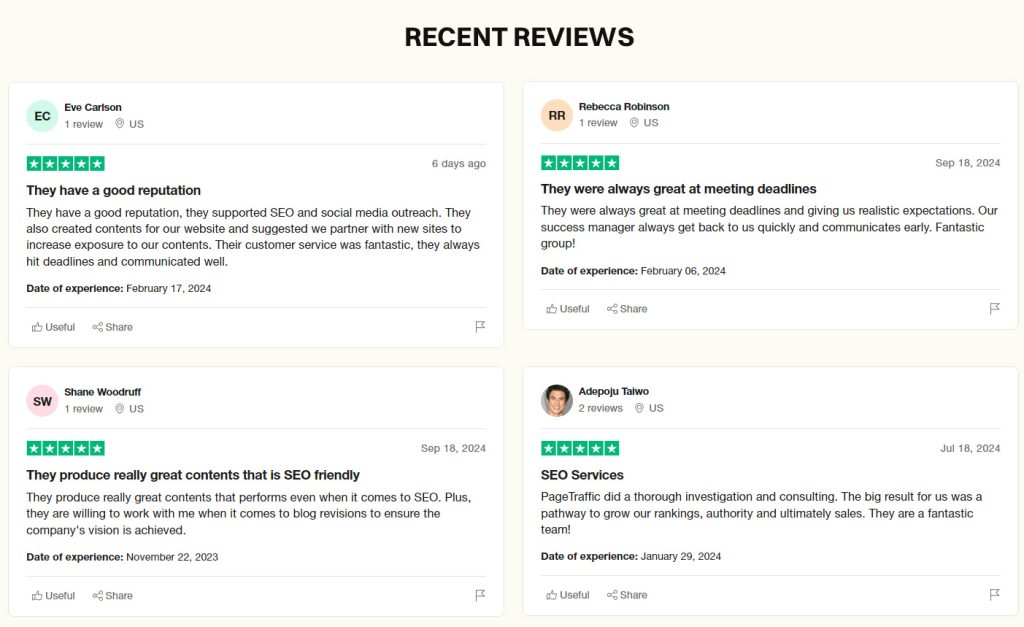
When people see positive reviews about your business, they are more likely to want to buy what you are selling. Reviews highlight your skills and what you can offer. Most businesses would do almost anything for a great five-star review.
This is where you can make a difference and make connections with people. This method of link building means asking to write reviews for other companies’ products and services.
If you wrote a good review for a company, you can ask them to add a link to your website in return.
This method doesn’t cost anything and is a great way to connect with people in your network while also getting a backlink in return. Who knows, your contact might return the favor, and you could get a good review for your business as well.
Do Influencer Networking
In the age of social media, your brand needs to connect with influencers who are important to your business. Brands are growing their audiences by connecting with important influencers. These influencers ask companies to pay them to add links to the companies’ websites and social media.
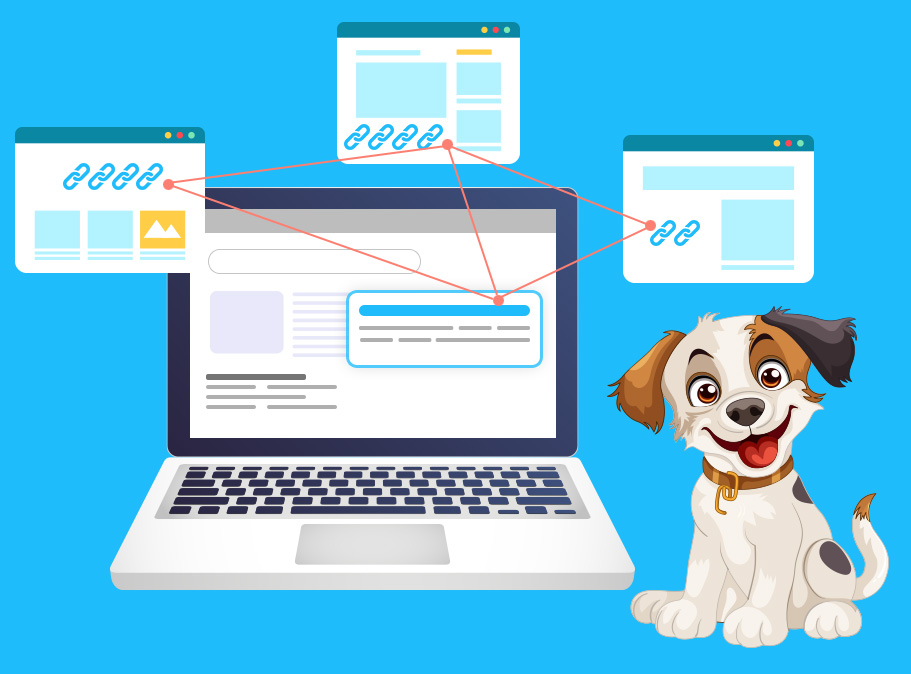
Sometimes, you might come across influencers who will be willing to add your link to their website for free. This usually happens in return for something nice you offer them.
This could be a free product or service you give them, or even some items with your brand on them. If you connect with influential people and give them something useful in return for a link to your site, you can reach a huge audience.
Use Press Releases Wisely
Sometimes, press releases and other shared content have so many keywords that they stop making sense. Brands sometimes pretend that press releases are important news to include many links back to their website.
This means that anyone who shares the press release will automatically include your link on their website. If you use press releases to share important news and avoid cramming in too many keywords, this can be a good way to build links.
But, using this method too much can lead to a penalty from Google. This is because the search engine sees these links as unnatural, especially in junk press releases. A good press release helps writers, journalists, influencers, and readers find out new and important information.
Wrapping Up
Manual link building is a great way for websites to get noticed and grow online. Having more links gives your website more authority. Having more authority helps you rank better in search results.
Good link building starts with checking your own website and the content you have. If you offer readers something interesting, editors will find it valuable and want to share it. Once you refresh and update your website, getting links to it becomes a lot easier.
By using these simple link building methods, you’re starting on a proven path to success. But, like any big adventure, you have company. Link building services and SEO auditors will help you get to the top of Google search results.
FAQs
How can I find websites to build links with?
To find websites for link building, begin by doing careful research in your area of interest. Use search engines to find helpful blogs, directories, or online discussion groups related to your topic. Tools like Ahrefs, and Moz can help you look at your competitors’ backlinks to find new chances for getting links. Also, think about contacting popular people in your field and bloggers who might want to share your work or work with you on projects. By using these tips, you can create a list of websites that are likely to give you helpful backlinks.
What should be added in outreach emails?
Outreach emails should be written carefully to get more chances of a good reply. Begin with a friendly greeting and say something special about the person’s website to show that you’ve researched it. Explain in simple terms why your content or website matters to their audience and how it helps them. Keep it short and straightforward, so the reader can easily see why they should link to your content. Ask them to check out your content or think about adding it to their next post.
How can I tell if my link building work is successful?
To measure how well manual link building is working, you need to watch a few important numbers. Use Google Analytics to check the traffic coming from new links. Google Search Console can be used to see how your site is doing on search engines and if your rankings get better. Also, check how good and how many backlinks you get by using tools like Ahrefs or Semrush. Check things like domain authority, page authority, and how relevant the websites that link to you are. Check these numbers often to see how well your link-building is working and make changes if needed.
How do I begin building links manually?
To begin manual link building, first look for websites that could link to yours and are related to your industry or field. This means looking for websites and blogs that talk about similar subjects as your content and are well-respected. Next, make a plan for your content that focuses on creating useful and interesting things that other people would like to share or link to. When your content is finished, write unique emails to the website owners or editors. Making connections and regularly checking in can really improve your manual link-building work.
How long does it take to see results from manual link building?
Building links manually takes time and doesn’t show quick results. Usually, it takes a few weeks to a few months for search engines to find and record new backlinks, and for these links to help improve your search rankings. The time it takes can change based on things like how often search engines index your site, how good your links are, and how tough your industry is. Being patient and staying consistent are important. Keep working hard and getting good links, as this will help improve your website’s search results ranking over time.
